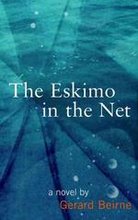Cat with its Teeth in a Pidgeon's Neck
Whoh - Cahiers de Corey - stole this from them - a long quotation by Edmund White:
"Here’s an admission: I sometimes wonder why people bother with poetry. After all, the best novelists (Proust and Nabokov, to name just two) offer the reader page after page of language as precise, as unpredictable and as ravishing as the language of any poet—and the novelists simultaneously make their local delights serve larger structural or thematic ambitions (the generation of suspense, the play of ideas, the revelation of character, the depiction of society, the weaving of a thick, tragic sense of duration). In great fiction the language is not only satisfying in itself, but it also fulfils larger purposes of design: it is sculptural, in the round, gestural. Fiction makes a world, dense and social. Or, to change the figure, in poetry words are like notes from a flute, the tracery of a tune, whereas in fiction words are like notes of a symphony orchestra—compositional, the integers of a giant calculus.I say all this, at the risk of seeming philistine, in order to demonstrate that I’m no friend to poetry unless it is indispensable to me, unless in does something no prose could emulate."
Cat among the pidgeons time - cat with its teeth in a pidgeon's neck











